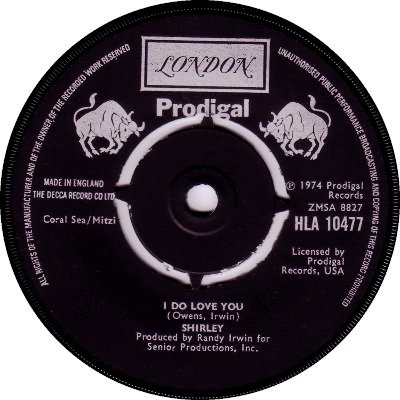
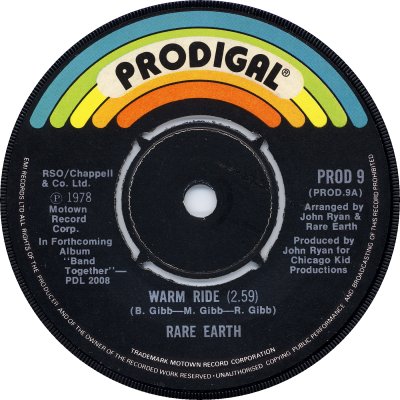
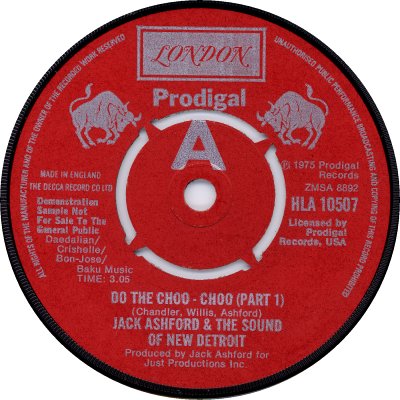
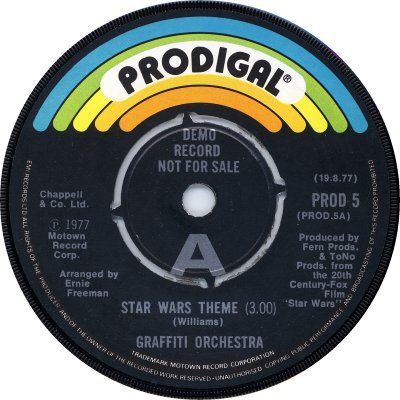
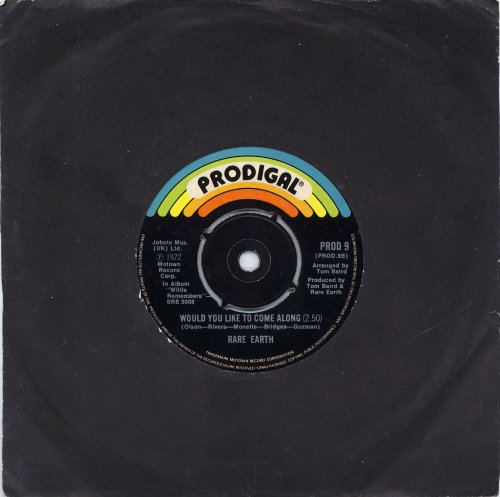
American, based in Detroit. 'Billboard' of the 16th of November 1974 broke the news that Barney Ales, formerly executive vice-president of Motown, was returning to the music business with his own label some thirty months after leaving that company. The new label, Prodigal, was to be based in the birthplace of Motown, and would have independent distribution. The first Prodigal single, Shirley's 'I Hear Those Church Bells Ringing / Chapel Of Love', duly appeared, on the 2nd of December. In the event, Prodigal was to remain independent for just under a year. Ales returned to Motown in late 1975 as president of Motown Records, and Motown acquired his Prodigal label in the process. At that point the label design changed from a red-on-yellow one featuring a pair of bulls to one with a multicoloured arch. Prodigal went on to operate as a replacement for Motown's Rare Earth label, a repository for product that didn't fit on the main labels; it was described in 'BB' of the 9th of April 1977 as 'Motown's Pop subsidiary'. Ales left Motown again early in 1979 ('BB'; 6th January), and Prodigal, which had been running out of steam, ground to a halt later that same year.
With regard to Britain, the 'Gossip' column of 'Music Week' of the 16th of November 1974 gave Prodigal its first UK mention, describing it as a new label formed by Ales and saying that it would probably be handled by Decca in this country. An article in 'MW' of the 18th of January 1975 said that a licensing deal was 'still in the offing' and that the company had issued its first single in the USA just before Christmas. A couple of weeks later 'MW' of the 1st of February was able to confirm that an agreement had been signed with Decca; Prodigal records were to appear on the London label with the company's name and its 'twin bulls' logo added (1, 3). The Decca deal was to yield only five singles and one album before Ales's return to the Motown fold late in 1975. As a result of the reunion, when Prodigal's licensing agreement with Decca in the UK expired the label joined Motown at EMI.
There was a slight delay between Prodigal's leaving Decca and getting into its stride with EMI. 'MW' of the 19th of June 1976 said that Prodigal would be given its own label identity but that as yet no date had been fixed for it to make its debut; and it was not until November of that year that its first single hit the shops. 'MW' of the 5th of that month confirmed that Prodigal was to be used for Rock and Pop as opposed to Motown's usual material. The singles were given a PROD-0 numerical series, but sadly there weren't destined to be many of them. There were half a dozen releases in 1977, but the first half of 1978 saw only a couple of additions to the catalogue, and in the spring of 1979, following the reissue of an old Stoney & Meatloaf single, the UK Prodigal label was discontinued, at much the same time as its American counterpart.
The design of the British Prodigal label was the same as that of the American one (2), and demo singles were marked in the usual EMI manner (4). There were no company sleeves as such, but singles were generally sent out in black sleeves (5). Prodigal never troubled the compilers of the British Singles Chart, though Charlene's 'I've Never Been To Me' b/w 'Freddie' (PROD-4; 1977) was a hit when it was reissued on Motown (TMG-1260) in 1982, with a new 'B' side. Prodigal records were of course manufactured and distributed by EMI, and in 1978 the label came under the umbrella of EMI's Licensed Repertoire Division.
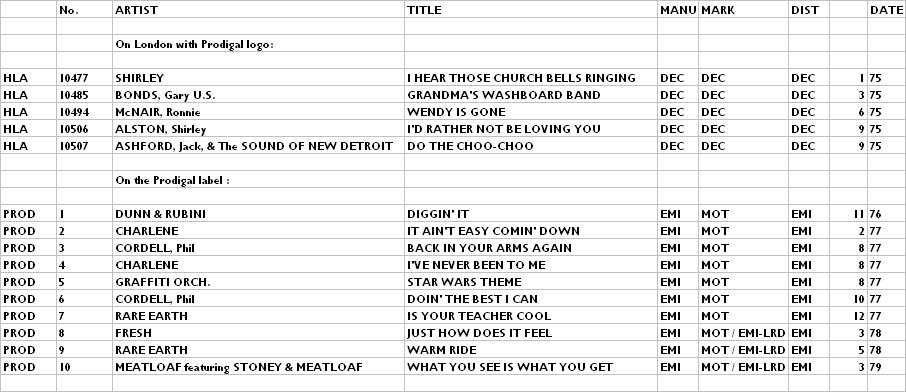


Copyright 2006 Robert Lyons.

